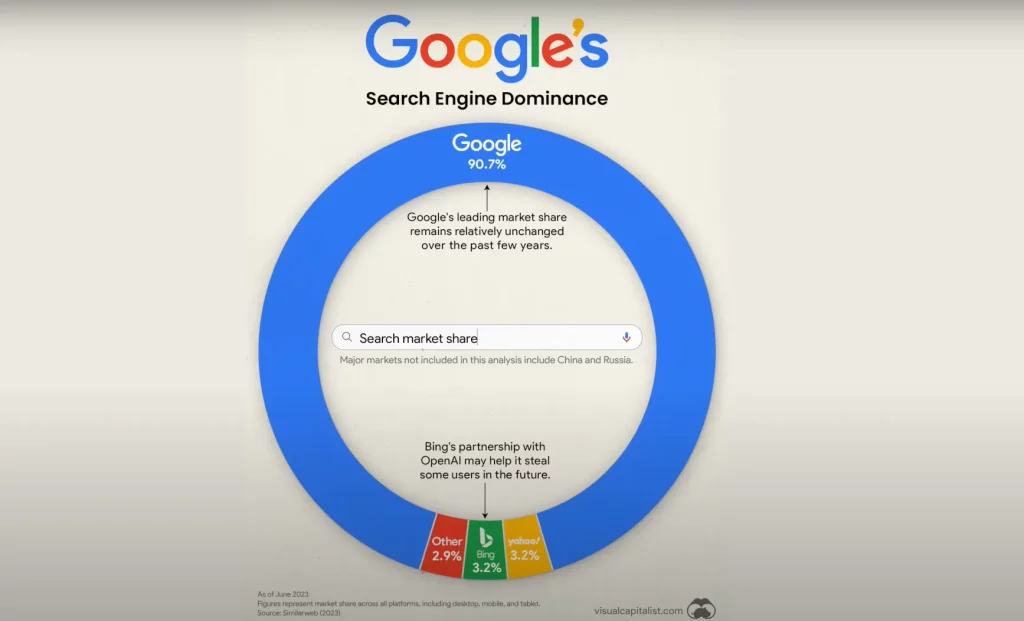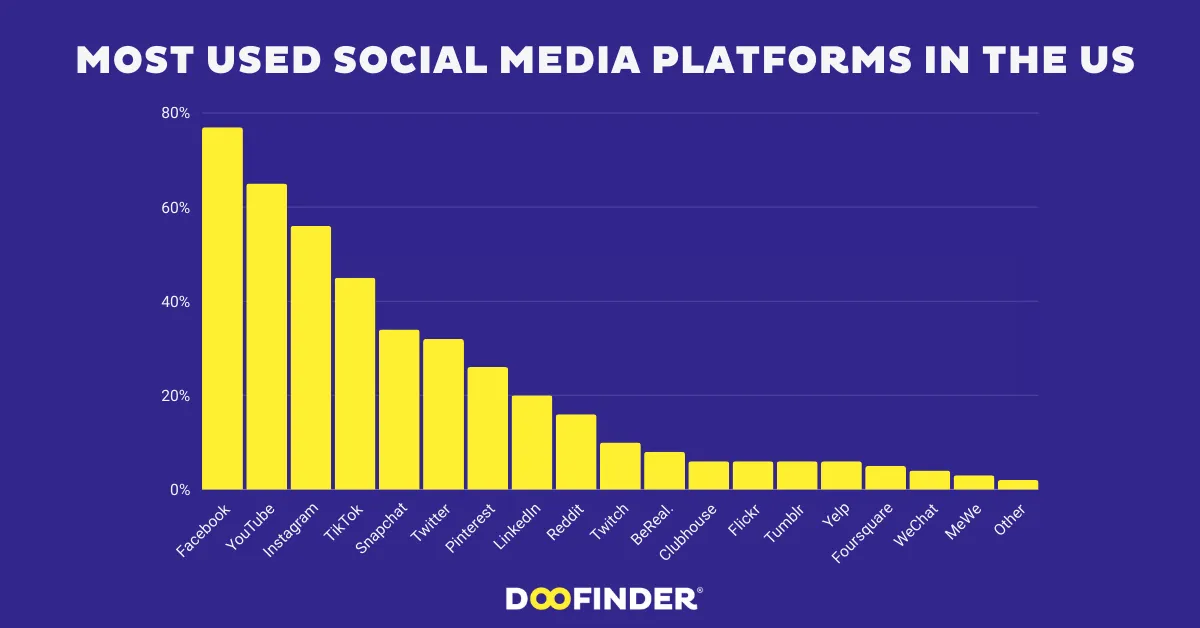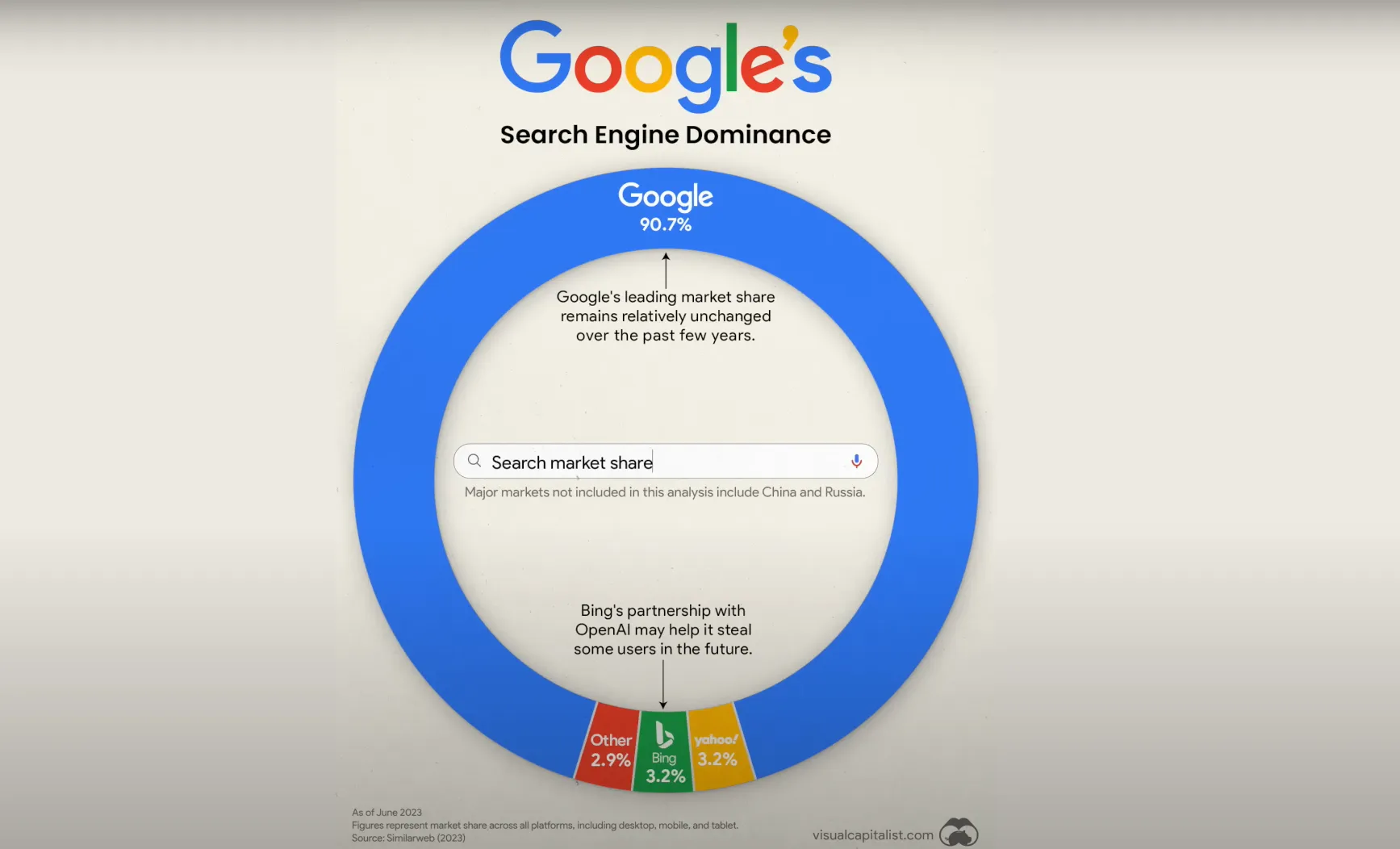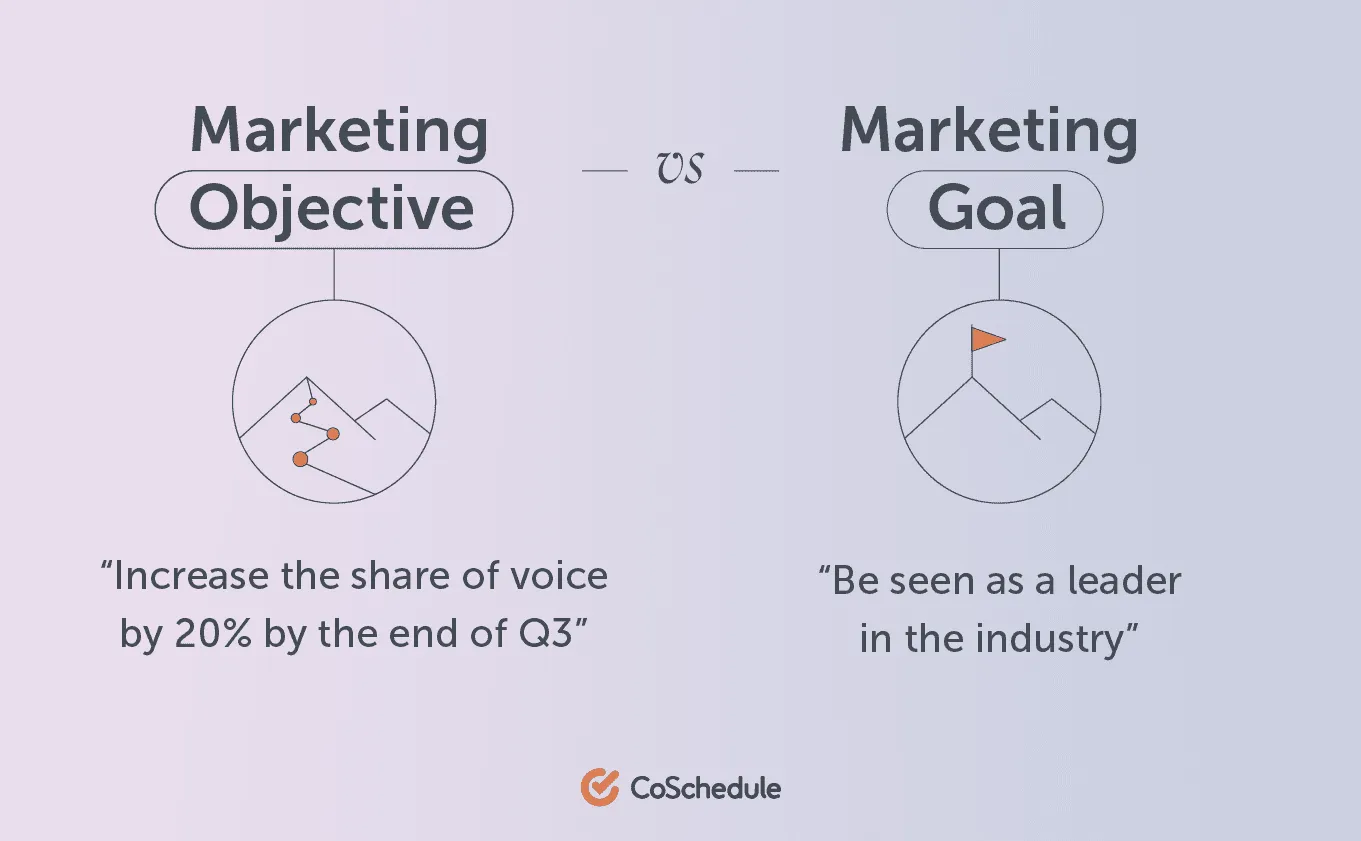In the ever-changing world of digital technology, search engines have become the gateway to information, connecting users with the vast expanse of online content. As the primary means of finding and accessing information, the top search engines have a profound impact on how we engage with the digital landscape. This article delves into the top search engines, exploring their unique features, capabilities, and the evolving trends that are shaping the future of online search.
The Dominance of Google

The Google Ecosystem: More Than Just a Search Engine
Google, the undisputed leader in the search engine market, has expanded its reach far beyond its core search function. The Google ecosystem encompasses a diverse range of products and services, including YouTube, Google Maps, Google Ads, Google Analytics, and Google Chrome, among others. These complementary offerings have cemented Google’s position as a comprehensive digital platform, catering to the diverse needs of users and businesses alike.
The Power of Google Search
Google’s search engine has long been the go-to choice for users seeking information, with its unparalleled indexing capabilities and advanced algorithms. The company’s continuous investment in research and development has led to the development of sophisticated search features, such as voice search, image search, and the integration of rich snippets, which provide users with quick and relevant answers to their queries.
Google’s Monetization Strategies
Google’s dominance in the search engine market has also translated into a lucrative business model. The company’s advertising platform, Google Ads, offers businesses the opportunity to reach targeted audiences through a wide range of ad formats, from text-based ads to video and display ads. This revenue stream has been a driving force behind Google’s financial success and its ability to reinvest in the development of new technologies and features.
Challenges and Controversies
Despite its overwhelming success, Google has faced its fair share of challenges and controversies. Issues surrounding user privacy, data collection, and concerns about the company’s market dominance have led to increased scrutiny from regulatory bodies and policymakers. As Google navigates these challenges, it must strike a delicate balance between maintaining its market leadership and addressing the growing concerns of users and regulators.
The Rise of Bing

Microsoft’s Search Engine: A Viable Alternative
While Google has long been the dominant force in the search engine landscape, Bing, Microsoft’s search engine, has emerged as a viable alternative. Bing has gained significant traction, particularly in certain regions and among specific user segments, offering a unique set of features and capabilities that set it apart from its competitor.
Bing’s Search Functionality
Bing’s search algorithms are designed to provide users with comprehensive and visually appealing search results. The search engine’s integration with other Microsoft products, such as Office 365 and Azure, has also contributed to its appeal among enterprise users and businesses.
Bing’s Monetization and Advertising
Similar to Google, Bing has developed a robust advertising platform, Bing Ads, which allows businesses to reach and engage with their target audience. The platform’s integration with Microsoft’s broader ecosystem has made it an attractive option for those already utilizing Microsoft’s suite of products and services.
Bing’s Challenges and Opportunities
Despite its growth, Bing continues to face challenges in catching up to Google’s market dominance. However, the search engine’s partnerships with other technology giants, such as Yahoo and DuckDuckGo, have opened up new avenues for growth and exposure. As Bing continues to evolve and refine its offering, it may become an increasingly attractive option for users and businesses seeking an alternative to the Google search experience.
The Privacy-Focused Approach: DuckDuckGo
Prioritizing User Privacy in Search
In an era where data privacy has become a growing concern, DuckDuckGo has emerged as a search engine that prioritizes user privacy above all else. Unlike Google and Bing, which collect vast amounts of user data to personalize search results and targeted advertising, DuckDuckGo takes a different approach, positioning itself as a privacy-focused alternative.
DuckDuckGo’s Search Capabilities
While DuckDuckGo may not offer the same level of personalization and advanced features as its larger competitors, it has developed a robust search engine that delivers accurate and relevant results. The search engine’s unique selling point lies in its commitment to protecting user privacy, which has resonated with a growing number of individuals and organizations.
DuckDuckGo’s Revenue Model
DuckDuckGo’s revenue model is primarily based on search advertising, similar to Google and Bing. However, the company’s focus on privacy means that it does not engage in the extensive data collection and personalized targeting practices of its competitors. Instead, DuckDuckGo’s ads are based on the user’s search query, ensuring that the advertising remains relevant while respecting the user’s privacy.
The Rise of Privacy-Focused Search
The growing demand for privacy-focused search engines, exemplified by DuckDuckGo, reflects a broader societal shift towards greater data protection and transparency. As users become more aware of the implications of their online activities, the appeal of search engines that prioritize privacy is likely to continue to grow, challenging the dominance of traditional search giants.
The Specialized Approach: Niche Search Engines
Catering to Specific Needs and Interests
While the major search engines, such as Google, Bing, and DuckDuckGo, cater to the diverse search needs of the general population, a growing number of niche search engines have emerged to address the specific requirements of various user segments and industries.
Specialized Search Engines for Academics and Researchers
The academic and research community has long relied on specialized search engines, such as Google Scholar and Microsoft Academic, to access scholarly literature, research papers, and scientific data. These search engines offer advanced features, such as citation tracking and integration with academic databases, making them invaluable tools for researchers and students.
Industry-Specific Search Engines
Certain industries have also given rise to specialized search engines that cater to their unique needs. For example, Wolfram Alpha is a search engine that focuses on providing in-depth, factual information on a wide range of topics, from science and mathematics to finance and economics. Similarly, Healthline serves as a dedicated search engine for medical and health-related information, providing users with reliable and authoritative content.
The Benefits of Niche Search Engines
Niche search engines offer several advantages over their more generalized counterparts. By focusing on specific domains or user needs, these search engines can provide more accurate, relevant, and comprehensive results, enhancing the user experience and supporting the unique requirements of their target audience.
The Emerging Dominance of Social Media Platforms

Search Engines within Social Media
In recent years, the role of social media platforms in the search engine landscape has become increasingly prominent. Platforms like Facebook, Twitter, and LinkedIn have evolved beyond their initial social networking functions, incorporating search capabilities that allow users to discover content, connect with relevant communities, and access information.
The Rise of Social Media Search
As social media platforms have become central hubs for sharing and consuming information, their search functionalities have become increasingly sophisticated. Users can now search for specific posts, profiles, hashtags, and even multimedia content within the confines of these platforms, tapping into the vast troves of user-generated data.
The Interplay between Social Media and Traditional Search Engines
While social media search has become a formidable force, it does not necessarily replace traditional search engines. Instead, the two often work in tandem, with users leveraging social media platforms to discover and share content, while turning to search engines for more comprehensive and authoritative information.
Challenges and Opportunities
The integration of search capabilities within social media platforms presents both challenges and opportunities. On the one hand, it enables users to access a wealth of user-generated content and harness the power of social networks. On the other hand, it raises concerns about the potential for echo chambers, misinformation, and the influence of platform algorithms on the information that users are exposed to.
The Emergence of Voice Search and Virtual Assistants
The Rise of Voice-Driven Search
The proliferation of voice-enabled devices, such as smart speakers and virtual assistants, has given rise to a new era of voice-driven search. Users can now interact with search engines and access information using natural language commands, ushering in a more intuitive and hands-free approach to information retrieval.
The Unique Capabilities of Voice Search
Voice search offers several distinct advantages over traditional text-based search. It allows users to access information more quickly and conveniently, particularly in situations where hands-free functionality is preferred. Additionally, voice search can provide more personalized and contextual results, leveraging the user’s location, preferences, and previous interactions.
The Role of Virtual Assistants
Virtual assistants, such as Amazon’s Alexa, Apple’s Siri, and Google Assistant, have become integral to the voice search experience. These AI-powered assistants not only facilitate voice-driven search but also provide a wide range of other functionalities, including task management, smart home control, and even information synthesis.
Challenges and Opportunities
The rise of voice search and virtual assistants presents both challenges and opportunities. While the technology offers a more intuitive and accessible search experience, it also raises concerns about privacy, data security, and the potential for bias in the algorithms that power these systems. As these technologies continue to evolve, striking a balance between user convenience and responsible data management will be critical.
The Future of Search: Trends and Predictions

Advancements in Search Engine Technology
As the search engine landscape continues to evolve, we can expect to see significant advancements in the underlying technologies that power these platforms. From the refinement of natural language processing and machine learning algorithms to the integration of emerging technologies like artificial intelligence and augmented reality, the future of search is poised to be more intelligent, personalized, and immersive.
Personalization and Contextual Search
Search engines are likely to become increasingly adept at understanding user intent and providing personalized, context-driven results. By leveraging the wealth of user data and behavioral insights, search algorithms will become more proficient at anticipating user needs and delivering tailored information.
Multimodal Search Experiences
The integration of various data formats, such as text, images, videos, and voice, will enable search engines to offer more comprehensive and multimedia-rich experiences. Users will be able to seamlessly transition between different search modalities, seamlessly accessing the most relevant information across various content types.
The Role of Artificial Intelligence
Artificial intelligence (AI) will play a crucial role in shaping the future of search. AI-powered algorithms will enhance the search engines’ ability to understand natural language, extract insights from unstructured data, and provide more intelligent and informative responses to user queries.
Privacy and Data Management Considerations
As search engines continue to evolve, the importance of responsible data management and user privacy will become increasingly paramount. Search platforms will need to strike a delicate balance between personalization and data protection, ensuring that users maintain control over their personal information and have a transparent understanding of how their data is being used.
Conclusion
The search engine landscape is a dynamic and ever-changing ecosystem, with each of the major players offering unique capabilities, features, and approaches to information retrieval. From the dominant force of Google to the privacy-focused DuckDuckGo and the specialized niche search engines, the search engine industry continues to evolve, driven by the changing needs and preferences of users, the emergence of new technologies, and the ongoing challenges of data privacy and responsible data management.
As we look to the future, the search engine industry is poised for further advancements, with the integration of artificial intelligence, voice search, and multimodal search experiences promising to reshape the way we interact with and access information online. However, alongside these technological advancements, the search engine industry must also address the growing concerns surrounding user privacy, data security, and the potential for algorithmic bias, ensuring that the search experience remains transparent, trustworthy, and beneficial for all.
Ultimately, the search engine landscape will continue to be a dynamic and influential space, shaping the way we navigate the digital world and access the wealth of information available at our fingertips. By understanding the unique strengths and challenges of the leading search engines, as well as the emerging trends and innovations, we can better navigate this evolving landscape and leverage the power of search to unlock the full potential of the digital age.




